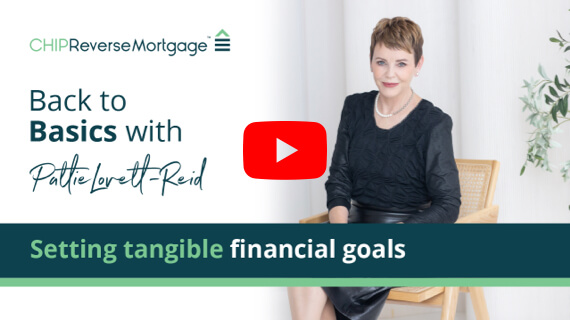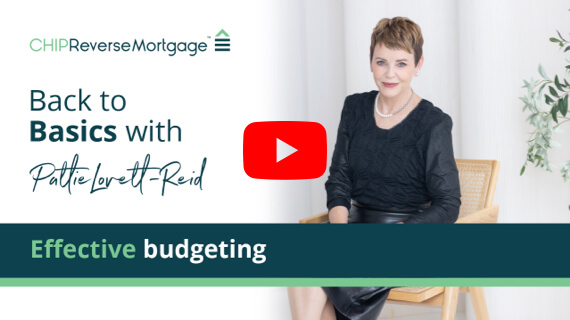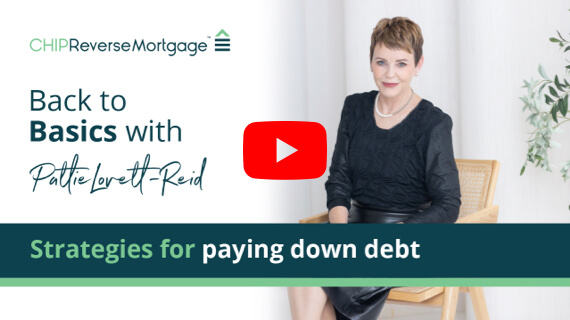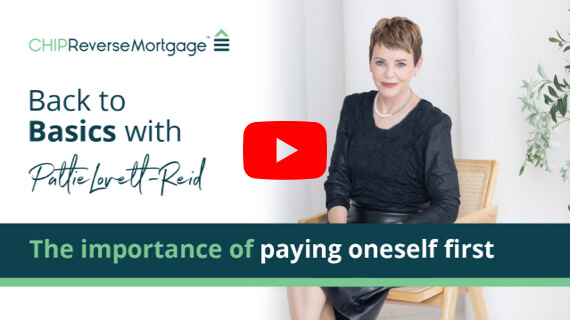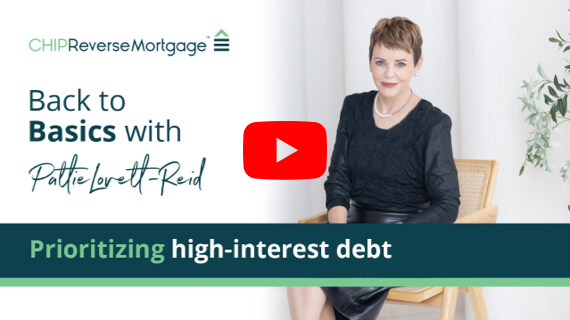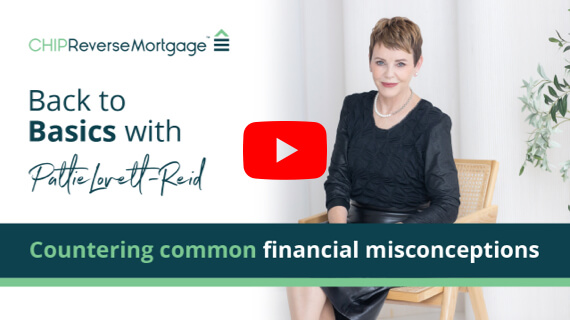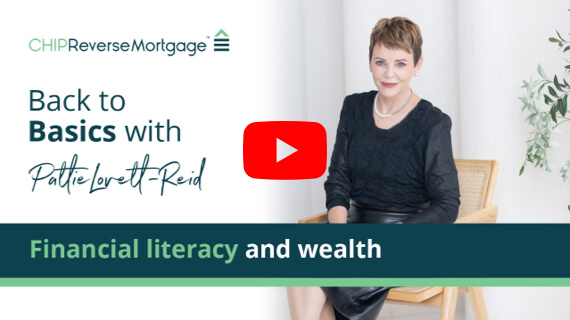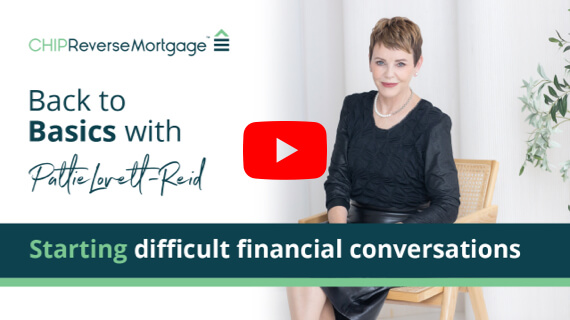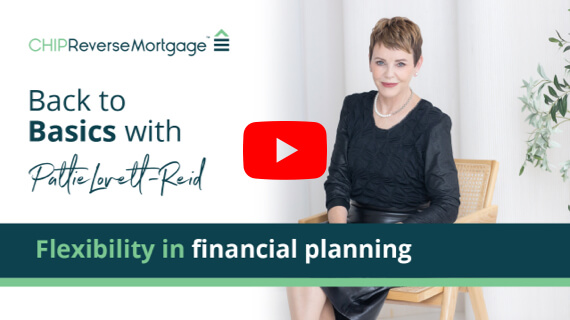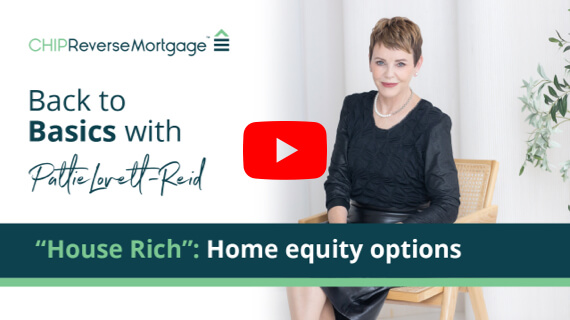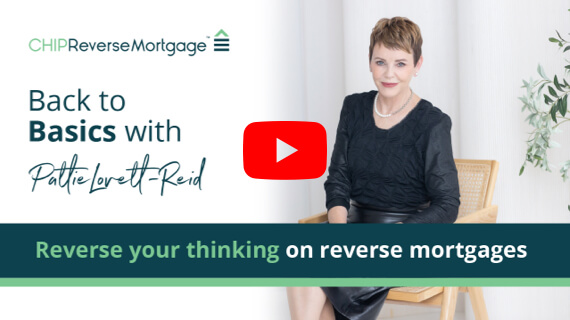Starting Your Journey to Financial Resilience
Reaching your financial goals involves more than choosing the right investments. Often, it’s the small steps you take that will make a big difference to your financial health. Like paying yourself first. And eliminating high-interest debt.
In these engaging videos, Pattie Lovett-Reid, one of Canada’s most trusted financial commentators, shares tips on how to strengthen your financial footing by doing the little things right. With a blend of modern insights and age-old wisdom, Pattie’s bootcamp offers actionable advice to help you get ahead in today’s ever-evolving economic landscape.
Setting tangible financial goals
Setting realistic financial goals is key to achieving them. Whether saving for retirement or a much-needed vacation, learn how a well-defined plan can help you reach your financial goals.
Effective budgeting
A personal budget details how and where you spend your money each month. Effective budgeting can help you identify and reduce unnecessary expenses and prioritize your spending on what really matters.
Strategies for paying down debt
Having a plan to pay off debt is key to improving your financial footing. It starts with identifying what you owe and then establishing strategies to pay down debt faster.
Paying yourself first
Pattie shows you how to pay yourself first by putting money aside on a regular basis. It’s an easy, convenient, and disciplined way to reach your financial goals.
Prioritizing high-interest debt
Not all debt is created equal. Today, interest charges can add up quickly. That’s why paying off high-interest debt first is one of the smartest financial steps you can take.
Common financial misconceptions
Not long ago, people were saying interest rates would remain low forever. Explore other common financial misconceptions, such as “my pension will provide for me in retirement” or “credit card debt is okay.”
Financial literacy and wealth
Discover how improving your financial literacy – with skills like budgeting, automatic savings, and retirement planning – can help you take control of your financial future.
Starting difficult financial conversations
Talking about money is hard. But having difficult financial conversations with your partner or family can help get you on track financially. Pattie shares tips on how to start the conversation.
The importance of seeking advice
We can all benefit from professional financial advice. A financial advisor can objectively assess your situation and help you stay focused on your goals at every stage of your life.
Flexibility in financial planning
Financial planning is more than just investing. It’s about putting together a flexible plan for your future and taking steps to achieve your dreams.
House Rich: Home equity options
The equity in your home can be used to fund a variety of goals, such as improving your cash flow or helping out your kids. Learn the different ways to leverage home equity.
Reversing your thinking on reverse mortgages
There are many myths about reverse mortgages. Pattie debunks some common misconceptions and shows when a reverse mortgage can be a valuable financial tool.
The Importance of Financial Wellbeing
Understanding your financial wellbeing is your first step to taking control of your finances and living a better retirement. Canadians 55+ have a unique set of circumstances that make having a strong sense of financial wellbeing especially important. Many Canadians 55+ are retired and on a fixed income. Without any more pay cheques coming in, practicing good financial habits is critical.
In fact, a recent report from the National Institute of Ageing, Healthy Outcomes, demonstrates that having greater financial security plays a significant role in both the physical and mental wellbeing of older adults. Asking questions, improving your financial literacy, and being aware of your finances are the first steps towards improving your financial wellbeing. What else can you consider?
- Check out HomeEquity Bank’s Financial Wellbeing Scale
- Call 1-833-357-2447 to get your FREE copy of Home Run
Is a Reverse Mortgage Right for You
Retirement is becoming more and more expensive. In an ever-changing economic environment, it’s more important than ever for retired Canadians to consider all of their financial options. For Canadians 55 and older who own their home, these options include a reverse mortgage. A reverse mortgage is a loan designed exclusively for Canadian homeowners aged 55+ secured against the value of their home. With a reverse mortgage, Canadian homeowners aged 55 and older can access up to 55% of their home value in tax-free cash without any regular monthly mortgage payments.
What Reverse Mortgages Can Be Used For
Unlike many conventional loans, which have to be for a specific purpose (such as a car loan) the funds you receive from a reverse mortgage can be used for absolutely anything. Here are some of the most popular ways Canadians use the money from a reverse mortgage:
- Stay in your home and avoid having to move, sell or downsize
- Boost retirement income and cash flow
- Help relatives financially (for example, to buy a home or pay for a wedding)
- Renovate your home (often to make much-needed improvements or help with mobility issues)
- Pay off high interest debts
- Travel more often
- Buy a second property
- Cover health expenses, including in-home care
- Finance the kind of retirement you’ve always dreamed of
- Cover unexpected expenses
READ OUR TOP RESOURCES ON FINANCIAL LITERACY
DON’T MISS OUT!
Get the latest news, retirement tips, and special offers sent right to your inbox.

Thank You!
Your details have been successfully submitted.
Check your inbox for future updates.


